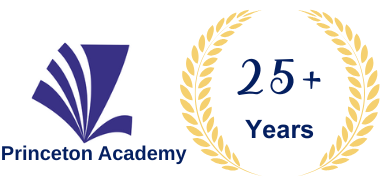panel_start Overview panel_end
Experts offer several causes of workplace conflict, including:
Disagreements, differences of opinion and conflicting perspectives on key issues inevitably arise in any context where people are working together. Workplace conflicts happen everywhere, and ignoring them can be costly.
Conflict can be expressed in numerous ways such as insults, non-cooperation, bullying and anger. Its causes can range from personality clashes and misunderstood communication to organizational mismanagement. The negative effects of workplace conflict can include work disruptions, decreased productivity, project failure, absenteeism, turnover and termination. Emotional stress can be both a cause and an effect of workplace conflict.
This programme incorporates Emotional Intelligence (EI), psychology, personality research and cutting-edge communication and influencing techniques.
panel_start Key Benefits panel_end
- Identify the common types and sources of conflict in your workplace
- Recognize the warning signs of conflict early on
- Address the issues quickly and effectively
- Increase the overall productivity of the team
- Understand the predictable emotional triggers and responses to conflict
- Differentiate between assertive, passive and aggressive behaviours
- Deal with difficult people and situations using a large range of powerful techniques
- Develop stronger working relationships and greater collaboration
- Reduce workplace stress and tension
panel_start Course Content panel_end
Conflict and Difficult Situations
- Conflict vs. Competition: When one overtakes the other
- Benefits and Drawbacks of Conflict in the Workplace
- The Power of Emotional Intelligence in Conflict Situations
- Conflict-management Default Mode
- Utilising the Circles of Concern and Influence
- Key Motivations or Drivers of Individuals and Groups
Advanced Interpersonal Skills For Conflict Management
- The Art to Successful Communication
- Building Rapport and the Circle of Trust Technique
- Personality Preference Assessment: Communicating with Different Personalities
- Mastering Active Listening Skills to Validate others’ Needs
- Using Powerful Questions to Gain the Right Information
- Transactional Analysis: The Power of Questions in Counselling
- Perfecting the Art of Non-verbal Language Signals
- Framing and Re-framing Issues to Facilitate Positive Outcomes
Mastering The Art of Persuasion, Influence and Negotiation
- Psychological Insights into People’s Behaviour and Attitude
- Filters and How our Perceptions can Influence our View of Others
- Determining Personal Agendas and Intentions
- Being Assertive: Techniques and Skills
- Negotiation ‘Positions’ and ‘Interests’ and Prime Negotiation Gambits
- Persuasion Techniques Incorporating Cialdini’s 6 Steps
- Achieving Synergy through the 4 Steps of Persuasion
- The Key Strategy Factors to Master the Art of Influence
Processes and Strategies to Handle Challenging or Difficult Conversations
- Main Types of Difficult / Challenging Conversations in the Workplace
- The Art of Influencing with Integrity and Personal Power
- Utilising Key Personal Strategies: GLASS, But Suppose, Feel, Felt Found
- Structuring ‘Crucial Conversations’ to Produce Optimal Results
- Using Coaching Techniques in Conflict: Problem and Need
- Recognising and Handling Ineffective Conflict Responses
- Dealing with Strong Emotions such as Anger and Frustration
- Defection Technique Strategies
​
COURSE SCHEDULE & FEES
DOWNLOAD COURSE CONTENTS
Please click the button below to download the course content. You'll need to provide your contact information to receive the document.
INCOMPANY/GROUP TRAINING REQUEST
Why Choose Our Incompany Program?
- 🎯 Tailored content specific to your business goals
- 👥 Train entire teams together, saving time and cost
- 📍 Delivered at your location or virtually
- 📅 Flexible scheduling to suit your timelines
- 📈 Increase retention and application of skills
